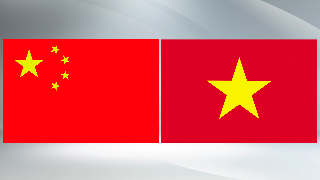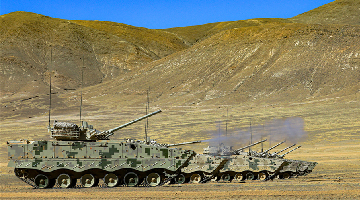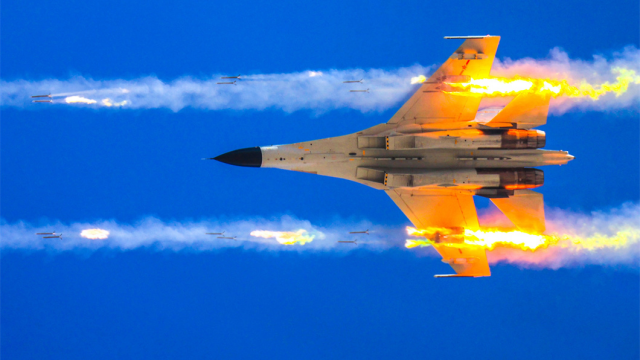US withdrawal from Intermediate-Range Nuclear Forces Treaty a destabilizing move that will diminish security for all and undermine international stability
What made the United States withdraw from the Intermediate-Range Nuclear Forces (INF) Treaty - the only arms-control agreement between the US and Soviet Union (now Russia) to abolish an entire category of weapons system - on August 2?
Was it to enhance the US' strategic advantages, provoke a reaction from Russia and China, develop military industries and boost the US economy? Also, is it viable for China to participate in INF Treaty negotiations, as sought by the US and Japan?
The withdrawal is a result of the current world situation. The US and Russia had been accusing each other of violating the Treaty and the US had suspended compliance for six months now.

As a first-wave offensive weapon, missiles can destroy enemy's command and communication networks, air defense systems and major arsenals in advance. What the US did in Iraqi and Kosovo testifies to the critical role of missiles.
Although the INF Treaty played an important role in easing military confrontation between the two nuclear superpowers, reducing the possibility of war and safeguarding world peace, the US believes the INF Treaty tied it down in Europe, hindering its strategic advantage against Russia. After the withdrawal, it can deploy land-based intermediate-range missiles and boost its strength.
The second consideration is to create new confrontation to consolidate its military alliances, which the US depends on to maintain its global hegemony. After leaving the INF Treaty, the US can deploy such missiles in its allies in Europe and East Asia, and so provoke reactions from Russia and China and create new "threats" to its allies. As a result, its military alliance network will be consolidated to combat this manufactured external pressure.
Another rationale behind this move is to develop military industries and the broader US economy. R&D and large-scale deployment of intermediate-range and shorter-range missiles mean a huge boost to military industries. Increased military acquisition and arms sales will promote the national economy, another motive behind the US administration's decision.
But the move will seriously impact world security, major country relations, international order and geopolitics.
First, it will increase the risk of nuclear war. Missiles whose ranges are shorter than 500 kilometers are not likely to be used during war since they may also affect the launch country. Those with ranges longer than 5,500 km are not used either since the targeted country will have enough time to plan a counterattack. It is the intermediate-range missiles in between that are most useful and likely to trigger war, the reason the INF Treaty explicitly prohibits them.
The Nuclear Posture Review published by the US earlier this year proposed production of low-yield nuclear warheads, just what such missiles perfectly match. If the US develops and deploys such ballistic weapons after the withdrawal, the possibility of using nuclear weapons in future wars will be raised dramatically.
Second, such a move will damage the existing balance and stability of the international landscape. Russian President Vladimir Putin has already warned that if the US deployed missiles in European countries, Russia would target nuclear weapons at such countries. China would be forced to respond to installations in East Asia in order to safeguard its security.
On Aug 3, US Secretary of Defense Mark Esper said he wants to place intermediate-range missiles in Asia within months and that Europe is also a priority region. If so, its Asian and European allies would be caught in a dilemma. If they did the deployment under American pressure, China and Russia would take counter-measures diplomatically and militarily, creating new confrontation.
Third, such a withdrawal after the US dropped out of a series of multilateral economic, political and cultural treaties, represents another blow to the current international order.
The US and Japan demand that China should participate in INF Treaty negotiation. But this is not a viable option considering the current strategic landscape.
International nuclear disarmament should follow the principles of "undiminished security for all and maintaining strategic stability" and fully accommodate various countries' different needs arising from their different weapons systems and means of safeguarding national security. It would not be in line with the above-mentioned principles for China, which only keeps the minimum strength to maintain its security, to enter a treaty now. Besides, China is committed to prohibiting and destroying nuclear weapons across the board. Countries who possess the largest and most advanced arsenal should step up their efforts to reduce their nuclear weapon arsenals to roughly the same level as other countries. Only then can the preconditions be created for other nuclear countries to engage in disarmament.
The author is deputy director of the Institute of World Economics and Politics at the Chinese Academy of Social Sciences. The author contributed this article to China Watch, a think tank powered by China Daily. The views do not necessarily reflect those of China Daily.









